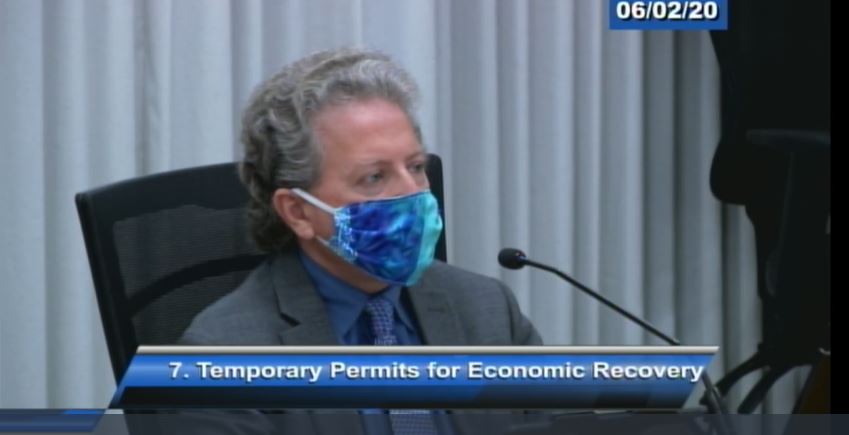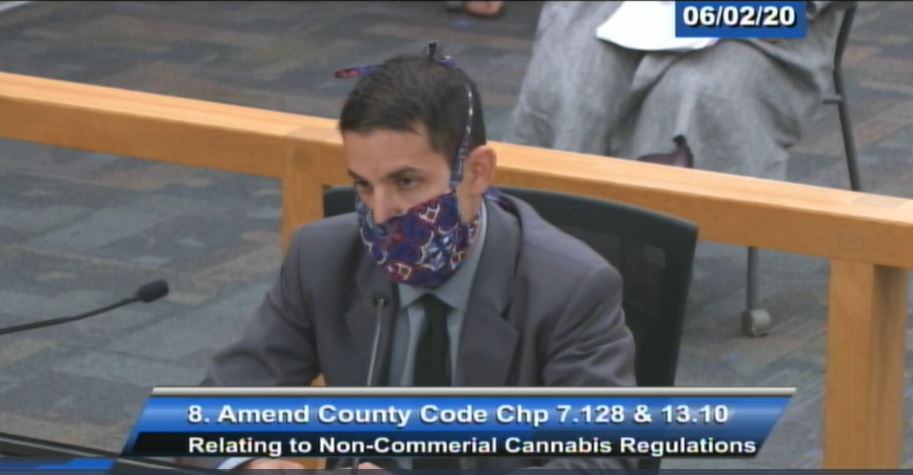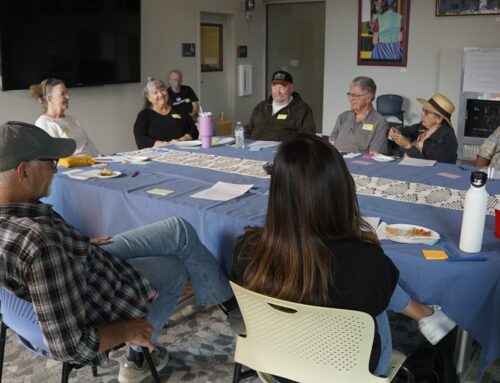Santa Cruz Local offers its board of supervisors recaps free as a public service. We want everyone in Santa Cruz County to know what happens in local government. We believe it makes our community stronger.
Santa Cruz Local depends on memberships from people like you to make sure vital information can be available to all. Can we count on your help?
SANTA CRUZ >> Restaurants and other businesses that plan to serve customers outdoors, in parking lots and other areas to maintain social distance rules will have permit fees waived, Santa Cruz County supervisors decided Tuesday with a unanimous vote.
The changes try to make it easier for businesses to reopen with COVID-19 distance requirements in outdoor locations. The county’s move follows cities such as Capitola that have started to change rules to allow more outdoor dining.

“I’m very interested in having a simple process for business owners who are just this week opening back up for the first time in months,” Supervisor John Leopold said at Tuesday’s supervisor meeting.
Some restaurant owners in unincorporated county areas have expressed interest in dining areas in converted parking lots to comply with COVID spacing rules, county leaders said. The county’s online form will have a checklist for restaurateurs to ensure access for the disabled and emergency services.
The county’s temporary permits would allow for 180 days of use with potential extensions up to three years. The permit process for outdoor sales at retail shops such as clothing stores is simpler than for restaurants, county staff said. Serving food and alcohol outdoors also may require permits from Alcoholic Beverage Control.
Cannabis proposals
In other news, county supervisors unanimously voted not to lower taxes for cannabis cultivators.
Supervisors also delayed a vote to June 16 on whether to loosen agricultural restrictions for cannabis cultivators on land as small as one acre and with reduced setbacks in designated areas.
County staff and supervisors said many people grow and sell marijuana illegally under medicinal grow rules. New rules could make it easier for “cottage” growers to become legal and contribute county tax revenue, proponents said.

Supervisor Zach Friend argued against the changes. He said the proposal provided no incentive for cottage growers to become legal and also would open at least 2,300 more parcels in the county to potential marijuana grows.
“What is before us really is the largest proposed expansion of marijuana cultivation since the board approved this framework,” Friend said.
“We’ve had seven or eight years of discussion on this,” Friend said. “There were a lot of fights and a lot of discussions and a lot of these things were actually hammered out and they’re there for a reason. And so we have to sometimes be careful about how we interpret how things are because they are the result of a pretty significant public process.”
Supervisor Bruce McPherson, who represents the San Lorenzo Valley, said the changes could have a negative impact on quality of life.
Supervisor John Leopold, who spoke in favor of the changes, noted that the cannabis industry has brought jobs to the county that pay more than minimum wage and more than traditional agriculture.
Santa Cruz County Board Chairman Greg Caput said the tax receipts for cannabis have not been as much as promised. Retail and non-retail cannabis taxes brought roughly $3 million to the county last year, county staff said.
Stephen Baxter is a co-founder and editor of Santa Cruz Local. He covers Santa Cruz County government.





